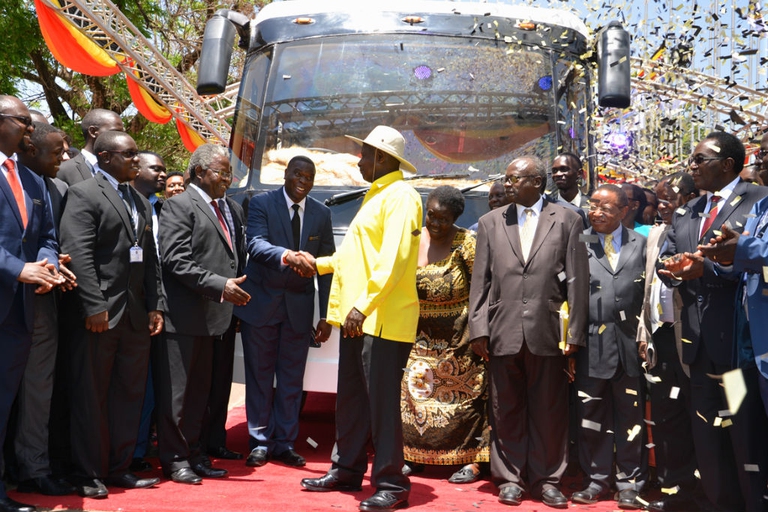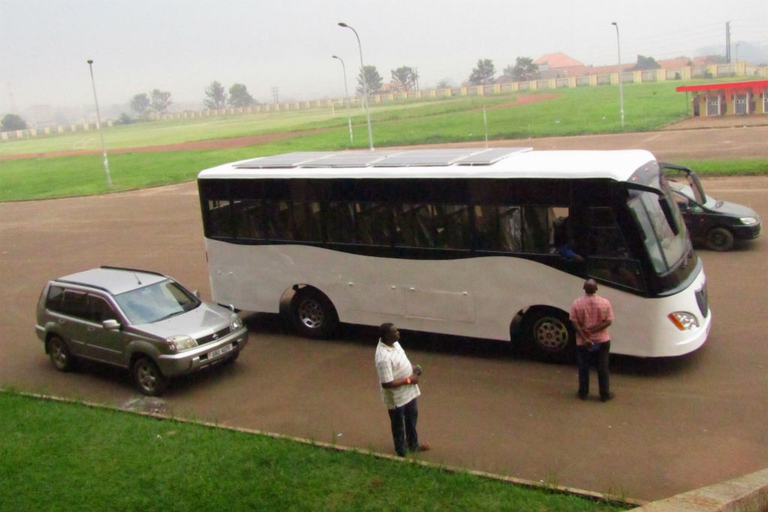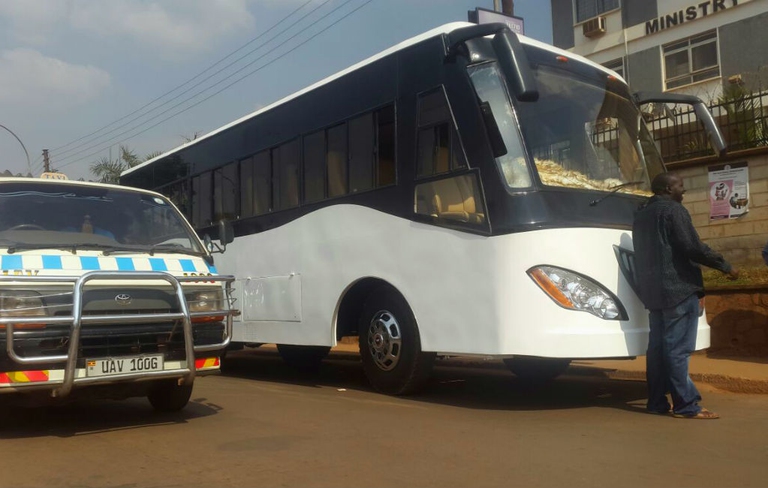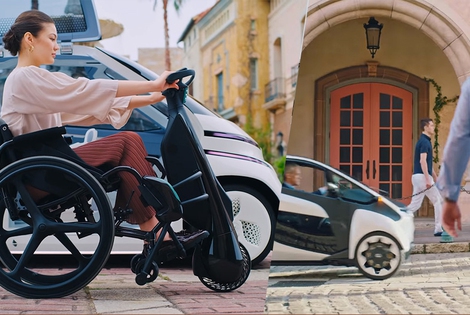
Milan has announced one of Europe’s most ambitious mobility schemes, known as Strade Aperte (open roads). Its goal is to reduce cars in phase 2 of the lockdown by increasing bike lanes and pedestrian areas.
It is a 35-seater electric solar bus with a range of 80 km. In Uganda sustainable mobility starts with the first solar-powered bus.
It is the first solar-powered bus ever built in Africa, more precisely in Uganda. The Kayoola bus, conceived by the Kiira Motors Corporation, was launched on 16 February in the streets of Kampala, the country’s capital.
The bus has seats for 35 people, driver included, and an electric engine powered by two batteries. One is connected to 12 solar panels on the roof, while the other is charged when the bus is parked. According to the company, it takes an hour to charge a battery.
“In Uganda, we have non-stop sun”, the company’s CEO Paul Isaac Musasizi said, as reported by the CNN. “No other countries manufacturing vehicles are on the equator like Uganda. We should celebrate that, and make a business out of it”.
The company, financially supported by the Ugandan Government, has developed this bus that has an elegant and modern design as well as a prototype of a new hybrid saloon called EV Smack. The technology, engineering components and design have been conceived by Ugandan professionals, a sign that the country has focused on training and research and is developing designers and engineers that can stand comparison with their peers in the international market. “By launching the bus, we are saying Uganda now has the potential to add value in the world, especially within electric technology”, Musasizi confirmed.
This is just the latest project realised in Africa that has to do with renewable sources. There are plenty of projects for the construction of renewable energy-fuelled plants across the continent, from Morocco to Kenya and South Africa. This is confirmed by a recent report released by the International Energy Agency (IEA), which in the 2015 Energy Outlook defines Africa as a fast-growing continent thanks to renewable energy.
“Determination, pride, focus, motivation, well I call it passion”, the team member Jonathan Kasumba said. “It’s an honor to be part of a team that boldly goes when few dare to tread. Changing minds to realize the future today”.
Siamo anche su WhatsApp. Segui il canale ufficiale LifeGate per restare aggiornata, aggiornato sulle ultime notizie e sulle nostre attività.
![]()
Quest'opera è distribuita con Licenza Creative Commons Attribuzione - Non commerciale - Non opere derivate 4.0 Internazionale.
Milan has announced one of Europe’s most ambitious mobility schemes, known as Strade Aperte (open roads). Its goal is to reduce cars in phase 2 of the lockdown by increasing bike lanes and pedestrian areas.
Formula 1, the world’s most important auto racing championship, has decided to turn the page and aim for carbon neutrality with the support of its teams, drivers and the whole racing circus.
Toyota and LifeGate began telling the story of hybrid mobility back in 2006, now, on the road to the Tokyo 2020 Olympics, they’re still treading the path of sustainable mobility. Here are the main steps of the journey.
Germany’s first solar bicycle lane could be the prototype for the roads of the future. The photovoltaic tiles melt snow and ice, and are capable of absorbing noise.
The Vespa is back in an electric version. Production has just started and the first models can be reserved online starting from October.
The city of Utrecht, in the Netherlands, is home to a bridge for cycling and walking that stretches over roof garden of a Montessori school. This project enhances practicality and will allow families to bring children to school by bike, passing through green areas. Despite their functionality, bridges are often seen as an infrastructure that is
The Lego hair bike helmet is the latest Internet craze. For now it’s just a prototype but production on a large scale will probably start soon.
Just as fires often give way to new growth, after the Dieselgate scandal, which saw Volkswagen cheating on US emission rules, the German car manufacturer radically changed course, beginning to focus on sustainable mobility. The German car company aims to propose thirty zero-emission models and produce at least one million battery electric vehicles by 2025. An ambitious mission
Sustainable, two-wheel mobility is triumphing in Copenhagen. After years of investments, policies, and infrastructural changes, bikes now outnumber cars in the city centre. The website Copenhagenize has released data linked to the number of vehicles entering the city centre, which are monitored by the city’s administration on a daily basis. Last year, 265,700 bikes have entered










